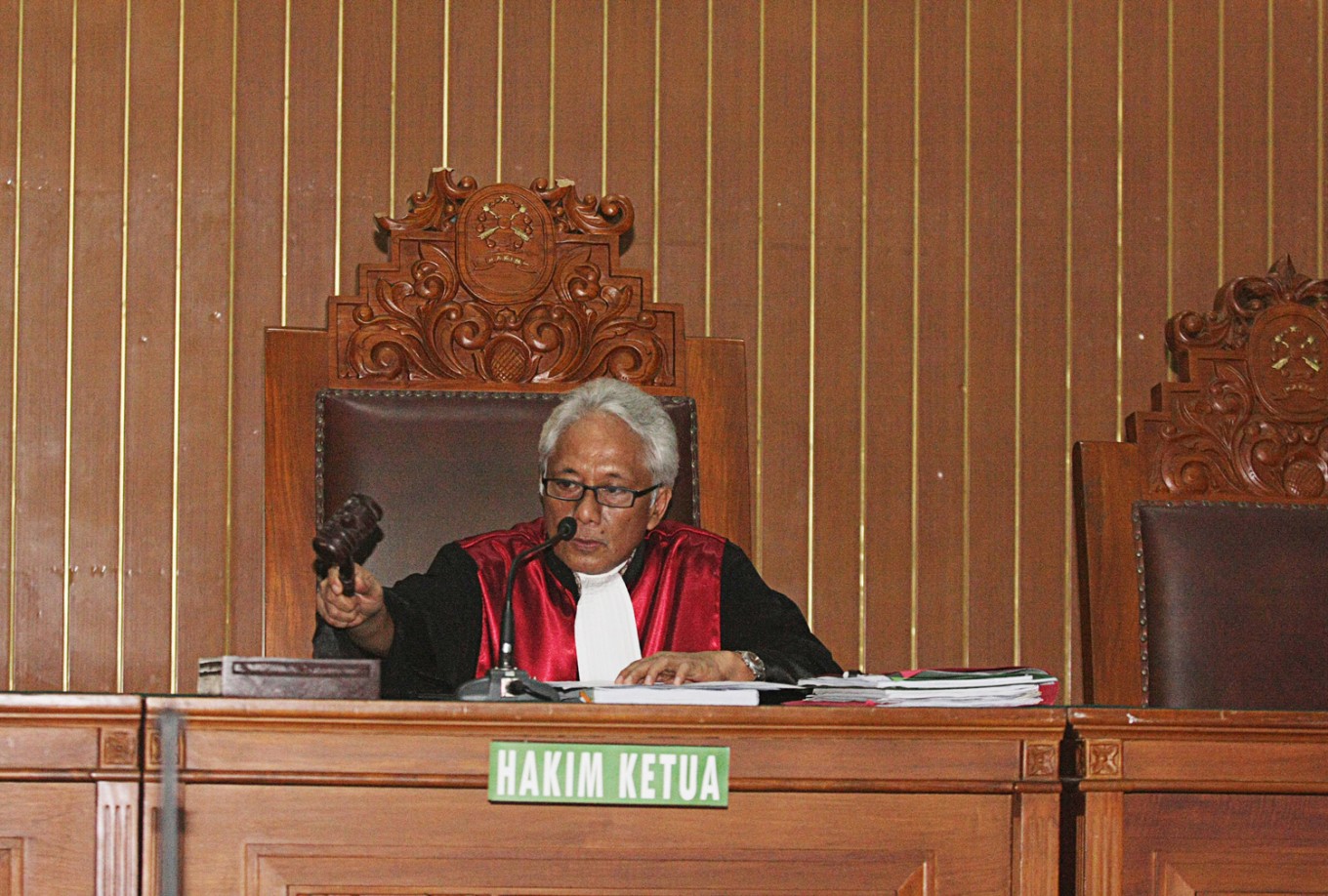Supreme Court recruits 1,500 judges after 7-year break
Change Size
 Sole judge Cepi Iskandar leads the hearing of a pretrial motion requested by House of Representatives Setya Novanto to challenge his suspect naming at the South Jakarta District Court on Sept.29. (Antara/Reno Esnir)
Sole judge Cepi Iskandar leads the hearing of a pretrial motion requested by House of Representatives Setya Novanto to challenge his suspect naming at the South Jakarta District Court on Sept.29. (Antara/Reno Esnir)
M
ore than 1,000 potential judges are set to participate in on-the-job training for two years before they can serve in various courts across the country, which has long suffered from a shortage of judges.
The Supreme Court has announced that 1,607 out of more than 25,000 applicants had passed a series of tests this year, including an interview by law experts, in one of the largest recruitment of judges, and the first held after a seven-year hiatus.
While an online system was introduced this year and promoted as a tool to enable a more merit-based selection system compared to past methods, questions remain on how far the training program could support the Supreme Court’s ongoing reform, which began in the early 2000s.
Indonesia’s courts have been in the media spotlight in recent years, following corruption scandals implicating several judges and court officials.
The Supreme Court is set to involve relevant parties, including the Judicial Commission and the Corruption Eradication Commission (KPK), in its new training program by providing, among others, a six-month capacity building course.
“The KPK will give [potential judges training] on how to prevent corrupt practices,” Supreme Court spokesman justice Suhadi said on Sunday.
He did not elaborate on how the training program could help build an integrity system to restore public trust, but claimed that the online recruitment system has already promoted greater accountability and significantly reduced nepotism.
In the selection process, the Supreme Court has also received assistance from relevant state institutions, such as the Administrative and Bureaucratic Reform Ministry, as well as the National Civil Service Agency (BKN).
Supriyadi Widodo, executive director of Indonesia Criminal and Justice Reform (ICJR), said one of the biggest challenges the Supreme Court faced was how to root out the strong hierarchy approach in courts that only foster corrupt practices.
“Will they [potential judges] be strong enough to face the court system? Young judges are vulnerable when facing senior ones,” Supriyadi said.
“This selection process can actually become the entry point for a [full] reform” if the Supreme Court is serious enough to give the new judges a chance to build a better system, Supriyadi added.
Judicial Commission deputy chairman Sukma Violetta previously said in a discussion in September that hierarchy had become one of the causes of corrupt activities in court.
“[Personal] factors of liking and disliking someone were also identified in our study. There were, for example, some senior judges who were trying to expel dissenting opinions [among a panel of judges overseeing a case],” Sukma said.
Jakarta-based Indonesian Legal Roundtable (ILR) previously revealed in its annual report that Indonesia’s rule of law index last year dropped to 5.31 from 5.32 in 2015.
Among the factors causing this drop, according to ILR, was that many judges struggled to remain objective when handing down a verdict. According to the study, judges’ objectivity had fallen to 1.44 from 1.48 in 2015.
A previous study in 2016 by United States-based World Justice Project (WJP) also showed that Indonesia scored low on the rule of law index, landing in 61st position out of 113 countries in the study. The country’s standing was far below neighbors Singapore and Malaysia, which ranked ninth and 56th respectively.
Meanwhile, the Judicial Commission has also vowed to focus on supervising the final selection process after the candidates undergo the two-year job training, said spokesman Farid Wajdi.
“Corrupt activities, such as cheating, plagiarism and nepotism, will not be tolerated,” Farid warned.









